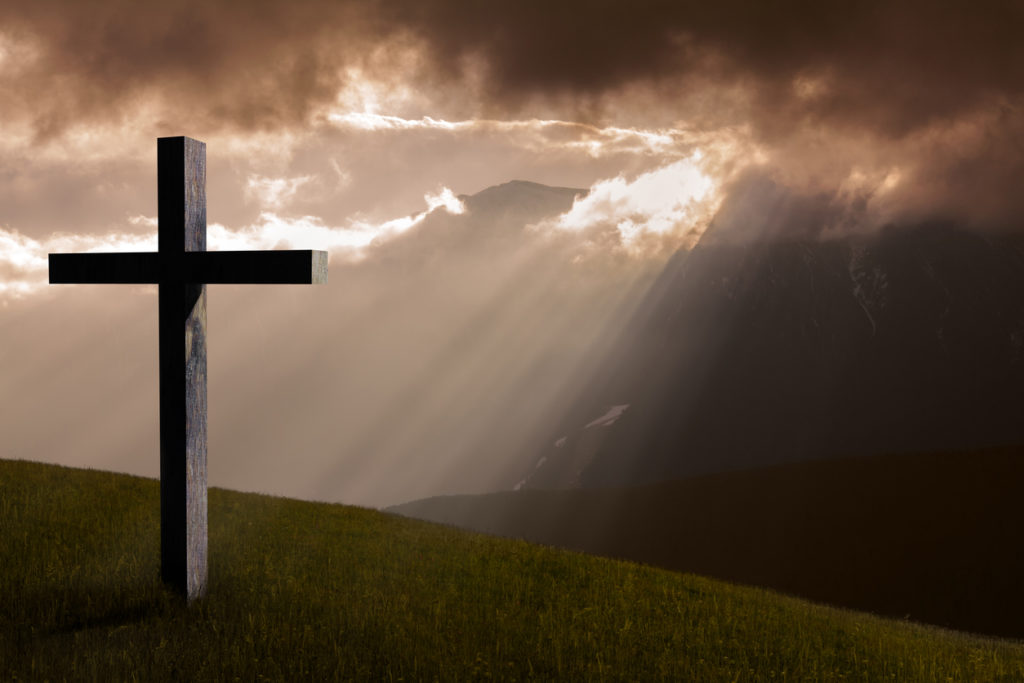The Passion narratives of Matthew, Mark, and Luke rotate on a three-year cycle for Palm Sunday and this year the Church is presented with Mark’s narrative. Most scholars will agree that Mark’s narrative is the oldest of the four Passion narratives and that his Passion narrative is also the oldest part of the Gospel that is attributed to him. Mark’s narrative is notably dark. Jesus is surrounded by a growing darkness and will face ultimate abandonment from his friends and disciples and the feeling of ultimate separation from God the Father.
Mark’s Passion narrative has a prelude of two events. The first event is the unnamed woman who comes and anoints Jesus. Some have argued that this woman is Mary Magdalene but we do not know her identity. The second event is the Last Supper . While Mark recounts the institution of the Holy Eucharist, what is more poignant concerning the Passion narrative is Jesus’s prediction of Judas’s betrayal, which is followed by Jesus’s prediction of Peter’s denial and the scattering of the disciples, all of whom say it will never happen.

Following the time in the Upper Room, we find Jesus and his disciples in the Garden of Gethsemane. Here the Lord experiences the Agony in the Garden when faced with his impending suffering. As the darkness grows around him, Jesus finds Peter, James, and John asleep, the same disciples who witnesses his glory in the Transfiguration. But Jesus is resolute to the Father’s will and Judas comes and betrays Jesus with a kiss;
in the original Greek, this kiss (kataphilein) is understood as the kiss of a beloved, which lends even greater pain to Judas’s betrayal of Jesus.
The disciples flee. Jesus is left alone. We are given the peculiar detail of the young man who runs away naked. In stark contrast to the rich young man who could not part with his possessions to follow Jesus, this young man is willing to give up absolutely everything, even to the point of being naked, to get away from Jesus.
Jesus is led before the Sanhedrin and Pontius Pilate. Before the religious court, we see that the trial is a mockery and Mark demonstrates that the whole affair is a violation of Jewish law.
Before the elders, Jesus affirms that he is both Messiah and the Son of Man. Before Pilate, Jesus remains silent and resolute.
Pilate knows that the whole affair is a lie, but he lacked the courage to do what was right before the innocent Lord. The crowds choose Barabbas and Jesus is handed over to be scourged and crucified.
On the cross, the chief priests, the Roman soldiers, as well as those crucified with him, deride the Lord.
In this moment he experiences total abandonment.
When he cries out from the cross “my God, my God, why have you forsaken me,” it is response to a sense of total abandonment from the Father for, in his divine person, he is experiencing the damnation of the human race. The Father has not abandoned Jesus, but Jesus, though sinless, experiences the ultimate separation from God because of sin.
Jesus is buried, darkness covers the earth, and all seems lost, but, the greatest of all miracles is yet to come.
Father Christopher House is the Rector-Pastor of the Cathedral and serves in various leadership roles within the diocesan curia, specifically Chancellor and Vicar Judicial.